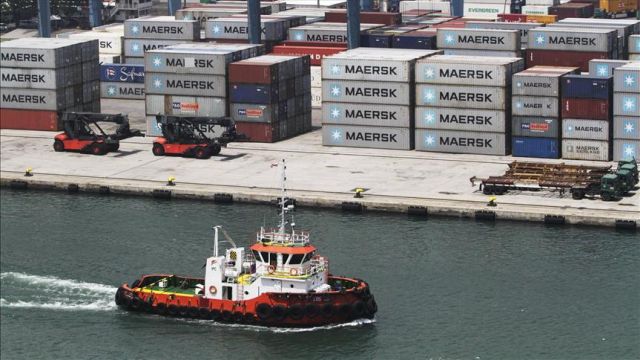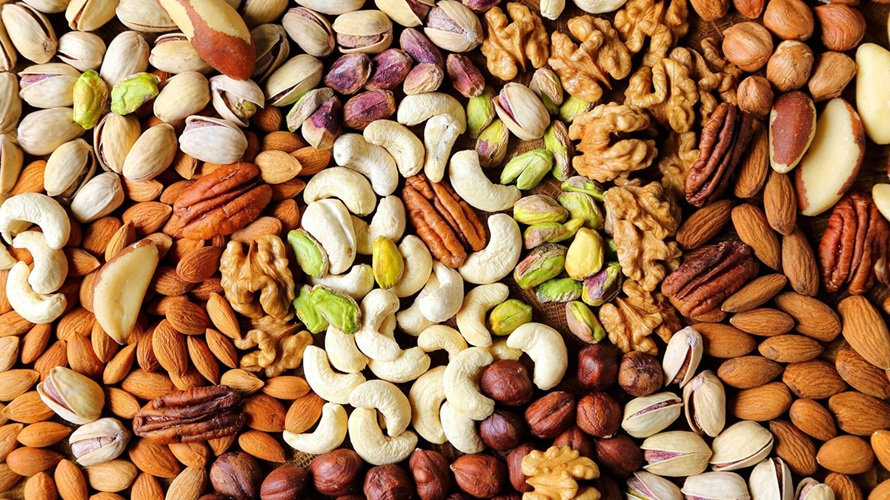Kabul, Afghanistan: The increasingly cold, stalled and often tense ties between Kabul and Islamabad have practically wiped out Pakistan’s traditional market share, allowing new players such as Turkey, China and India to replace it in landlocked Afghanistan, traders said.
The private sector of the two neighboring countries with the support of western diplomatic missions had established the Pak-Afghan Joint Chamber of Commerce and Industry (PAJCCI) six years ago in March 2012 to overcome the issues, which have worsened instead of being resolved.
It was announced at the launch of PAJCCI in Pakistan’s port city of Karachi — which has for long served as the main link for international trade for Afghanistan — that the body would strive to overcome transit impediments, enhance mutual trade and investment.
The Afghans hoped this would ensure that their shipments would no longer get delayed for unknown reasons while Pakistani traders eyed to access the Central Asian markets via the war-ravaged country.
Khan Jan Alakozay, vice president of the Afghanistan Chamber of Commerce and Industries (ACCI) and the founding member of PAJCCI, acknowledged that the trade between the two countries, which he pronounces as “natural trade partners” has been “politicized”.
“Every other day the Torkham border-crossing point and other routes are closed abruptly by Pakistan that has inflicted heavy financial toll, hurt traders and caused political repercussions,” he told Anadolu Agency.
The ACCI statistics indicate that imports from Pakistan has dropped from around $3 billion a couple of years ago to little over $1 billion now.
Considering the proximity in so many ways, Alakozay still believes if the rift between the two countries is resolved, the people and traders have much to gain in the two countries.
Meanwhile, after years of closure, the Ghulam Khan crossing point linking Khost province of Afghanistan with the North Waziristan of Pakistan opened last week upon the persisting demands of traders in both the country, Alakozay said.
He said this breakthrough can help overcome impediments in deteriorating bilateral trade. The trucks from Pakistan would be allowed entry to Afghanistan five days in a week while the trucks from Afghanistan would cross-over on the remaining two days in the week, he said.
Turkey entering medicine market in Afghanistan
Afghanistan’s crippling reliance on Pakistan particularly for wheat flour and medicine has “literally ended for good”, traders in the capital Kabul believe.
Abdul Khaliq Zazai, head of the Afghanistan Medicine Importers Union, said the best-quality Turkish medicine produced in line with the European standards are fast wiping out the drugs which had been previously imported from Pakistan for decades.
“For years, the medicine produced at multi-national medicine factories in Pakistan’s Karachi city had a good reputation in Afghanistan, but due to the abrupt border closures and other political issues, Afghan traders are now increasingly importing medicine from Turkey”.
He said Afghanistan imports $500 million worth of medicines on yearly basis, and for years up to 80 percent of these medicines were imported from Pakistan.
“The share of Pakistan has now dropped to around 30 percent, and it would fall further because the physicians and patients are satisfied with the newly imported medicines from Turkey, India, Bangladesh, Russia and other European countries.”
The Afghan government under President Mohammad Ashraf Ghani, a former World Bank economist, is rigorously pursing plans to diversify the country’s trade routes.
Among these routes include the Indian-sponsored Chabahar port in Iran and the Lapis Lazuli Corridor linking Kabul with Europe via Turkmenistan and Turkey.
Another significant route in this regard is the two air corridors established for trade with India and a third one for bilateral trade with Uzbekistan. The Afghan government is also eyeing to link road and rail with China via Uzbekistan.
Pakistan’s northwestern province bears the brunt
In neighboring Pakistan, the country’s top businessman, Zubair Motiwala, Chairman of the APJCCI, last week reiterated the significance of economic ties with Afghanistan in a meeting with officials at the Ministry of Commerce in the capital Islamabad.
Pakistan has long been discarding Afghanistan’s demand for transit access to India, which has further hampered the trade ties.
Motiwala, who recently visited the Afghan capital Kabul, told the local daily Dawn that Pakistan has lost even its traditional markets of flour, clothes and red meat in Afghanistan.
“Thousands of Afghans, who used to visit Peshawar for medical treatment, now prefer travelling India […] medical tourism of Peshawar, which was mainly due to Afghans, is now at zero level. Hospitals in Hayatabad (in Peshawar) are empty,” he was quoted as saying.
The northwestern province of Khyber Pakthunkwa bordering Afghanistan is boring the brunt of this situation.
“Around 90 per cent of the export to Afghanistan are from the Khyber Pukhtonkhwa and this downward trend have badly affected our industries where around 50 units were closed down during last two years due to fall in trade between both neighbor countries,” Zahidullah Shinwari, President of Sarhad Chamber of Commerce in the province told AA.
An official in Pakistan’s Ministry of Commerce, who asked not to be named due to restrictions on talking to the media, told Anadolu Agency the worsening law and order situation in Afghanistan and political tension between the neighboring countries are major factors which contributed to the decrease in exports.
*Islamuddin Sajid in Islamabad contributed to this story
—AA






0 Comments